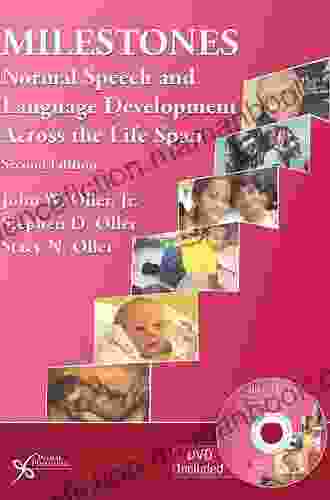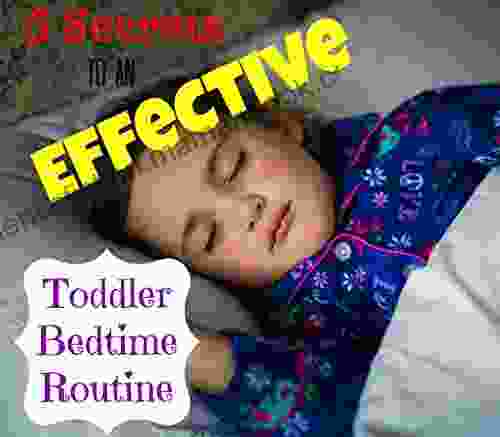Language Development Across the Life Span: A Comprehensive Guide

5 out of 5
| Language | : | English |
| File size | : | 2291 KB |
| Text-to-Speech | : | Enabled |
| Enhanced typesetting | : | Enabled |
| Word Wise | : | Enabled |
| Screen Reader | : | Supported |
| Print length | : | 332 pages |
Language is a complex and multifaceted skill that allows us to communicate with others, express our thoughts and feelings, and learn about the world around us. Language development is a lifelong process that begins in infancy and continues throughout adulthood. In this article, we will provide a comprehensive overview of language development across the life span, from infancy to old age.
Stages of Language Development
Language development can be divided into four main stages:
- Prelinguistic stage (birth to 12 months): During this stage, infants begin to communicate through non-verbal means, such as crying, cooing, and babbling. They also begin to understand some words and phrases.
- Early linguistic stage (12 to 24 months): During this stage, toddlers begin to produce their first words and phrases. They also begin to understand more complex language and to use it to communicate their needs and wants.
- Middle linguistic stage (2 to 5 years): During this stage, preschoolers continue to develop their language skills. They learn new words and phrases, and they begin to use language more fluently and grammatically. They also begin to understand more complex language and to use it to tell stories and to explain their thoughts and feelings.
- Late linguistic stage (5 years to adulthood): During this stage, children continue to develop their language skills. They learn new words and phrases, and they become more proficient in using language to communicate their thoughts and feelings. They also begin to understand more complex language and to use it to learn about the world around them.
Factors Influencing Language Development
There are a number of factors that can influence language development, including:
- Genetics: Genes play a role in language development. Some children are born with a predisposition for language, while others are not.
- Environment: The environment in which a child grows up can also influence language development. Children who are exposed to a rich language environment, with plenty of opportunities to hear and use language, are more likely to develop strong language skills.
- Cognitive development: Language development is closely linked to cognitive development. Children who have strong cognitive skills are more likely to develop strong language skills.
- Social development: Language development is also closely linked to social development. Children who have strong social skills are more likely to develop strong language skills.
Implications of Language Development
Language development has a number of implications for education and society.
- Education: Language is essential for learning. Children who have strong language skills are more likely to succeed in school.
- Society: Language is essential for social interaction. People who have strong language skills are more likely to be successful in their careers and in their personal lives.
Language development is a complex and multifaceted process that begins in infancy and continues throughout adulthood. There are a number of factors that can influence language development, including genetics, environment, cognitive development, and social development. Language development has a number of implications for education and society. Children who have strong language skills are more likely to succeed in school and in life.
5 out of 5
| Language | : | English |
| File size | : | 2291 KB |
| Text-to-Speech | : | Enabled |
| Enhanced typesetting | : | Enabled |
| Word Wise | : | Enabled |
| Screen Reader | : | Supported |
| Print length | : | 332 pages |
Do you want to contribute by writing guest posts on this blog?
Please contact us and send us a resume of previous articles that you have written.
 Top Book
Top Book Novel
Novel Fiction
Fiction Nonfiction
Nonfiction Literature
Literature Paperback
Paperback Hardcover
Hardcover E-book
E-book Audiobook
Audiobook Bestseller
Bestseller Classic
Classic Mystery
Mystery Thriller
Thriller Romance
Romance Fantasy
Fantasy Science Fiction
Science Fiction Biography
Biography Memoir
Memoir Autobiography
Autobiography Poetry
Poetry Drama
Drama Historical Fiction
Historical Fiction Self-help
Self-help Young Adult
Young Adult Childrens Books
Childrens Books Graphic Novel
Graphic Novel Anthology
Anthology Series
Series Encyclopedia
Encyclopedia Reference
Reference Guidebook
Guidebook Textbook
Textbook Workbook
Workbook Journal
Journal Diary
Diary Manuscript
Manuscript Folio
Folio Pulp Fiction
Pulp Fiction Short Stories
Short Stories Fairy Tales
Fairy Tales Fables
Fables Mythology
Mythology Philosophy
Philosophy Religion
Religion Spirituality
Spirituality Essays
Essays Critique
Critique Commentary
Commentary Glossary
Glossary Bibliography
Bibliography Index
Index Table of Contents
Table of Contents Preface
Preface Introduction
Introduction Foreword
Foreword Afterword
Afterword Appendices
Appendices Annotations
Annotations Footnotes
Footnotes Epilogue
Epilogue Prologue
Prologue Kai Strand
Kai Strand Patrick C Harrison Iii
Patrick C Harrison Iii Terry Carter
Terry Carter Marcel Marlier
Marcel Marlier Simon Child
Simon Child Kindle Comixology
Kindle Comixology Don Lattin
Don Lattin Jenny Ashcroft
Jenny Ashcroft Ivy Barrett
Ivy Barrett Nevil Shute
Nevil Shute Alfred Tennyson
Alfred Tennyson Emmanuelle Snow
Emmanuelle Snow J P Singh
J P Singh Shane Templeton
Shane Templeton J S Cooper
J S Cooper Donald Crane
Donald Crane Javier O Huerta
Javier O Huerta Carrie Bates
Carrie Bates Troy Mccombs
Troy Mccombs Ripley Harper
Ripley Harper
Light bulbAdvertise smarter! Our strategic ad space ensures maximum exposure. Reserve your spot today!
 Henry JamesFollow ·6.7k
Henry JamesFollow ·6.7k Yasunari KawabataFollow ·11.2k
Yasunari KawabataFollow ·11.2k Jacob HayesFollow ·8.5k
Jacob HayesFollow ·8.5k Brady MitchellFollow ·12.3k
Brady MitchellFollow ·12.3k George HayesFollow ·3k
George HayesFollow ·3k Ernest HemingwayFollow ·12.6k
Ernest HemingwayFollow ·12.6k Xavier BellFollow ·5.8k
Xavier BellFollow ·5.8k Colt SimmonsFollow ·3.9k
Colt SimmonsFollow ·3.9k

 Ashton Reed
Ashton ReedClean(ish) Food for People Who Like to Eat Dirty
By: [Your Name] Are...

 Ronald Simmons
Ronald SimmonsThe Handbook for Educators: A Comprehensive Guide to...
The Handbook for...

 Derrick Hughes
Derrick HughesAny Place Hang My Hat: A Hauntingly Beautiful Novel by...
A Masterpiece of...

 Adrien Blair
Adrien BlairFly Me to the Moon Vol. 5: A Lunar Odyssey through...
In the vast...

 William Powell
William PowellTips By Gardeners On Variety Of Subjects
Gardening...
5 out of 5
| Language | : | English |
| File size | : | 2291 KB |
| Text-to-Speech | : | Enabled |
| Enhanced typesetting | : | Enabled |
| Word Wise | : | Enabled |
| Screen Reader | : | Supported |
| Print length | : | 332 pages |














